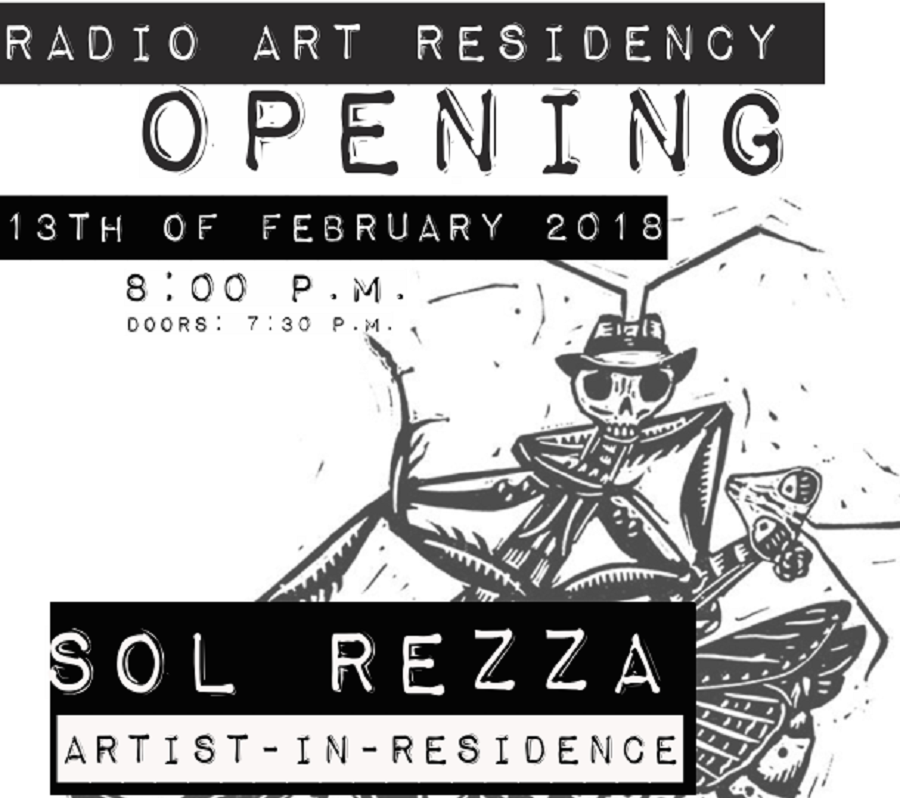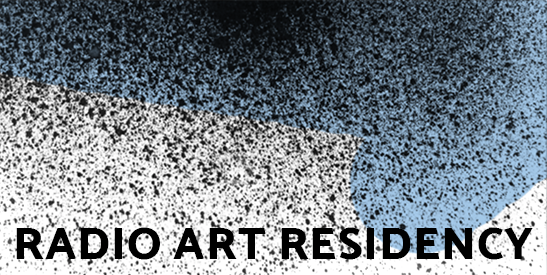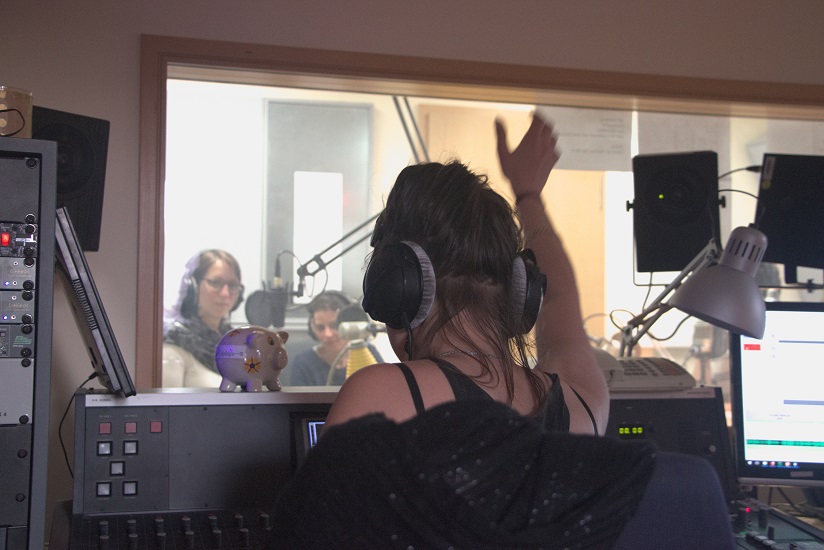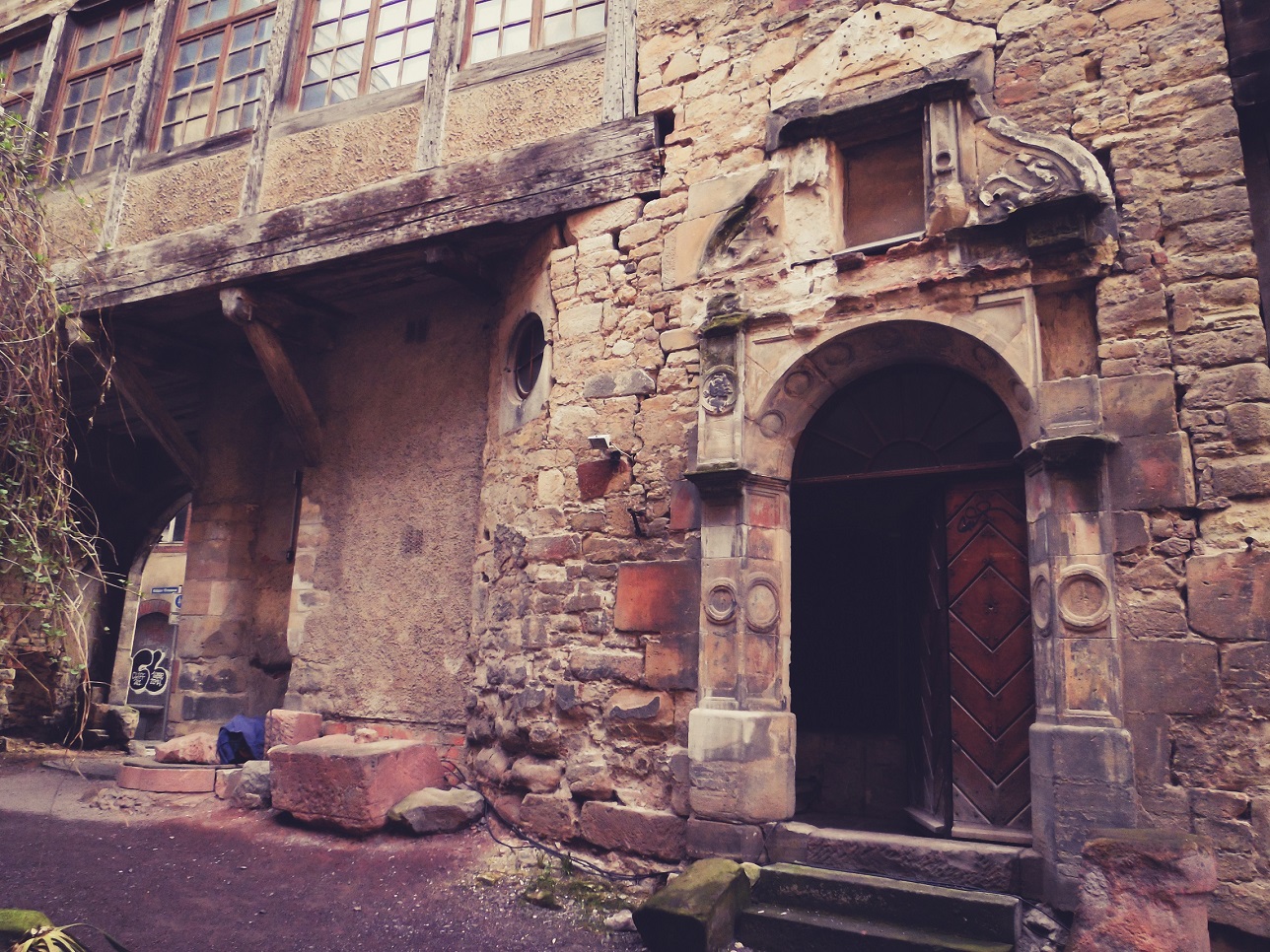
Todos somos contadores de historias
by Sol Rezza
‑English below-
Hablar de México y Argentina en un lugar tan alejado como es Halle en Alemania y con un entrelazamiento de lenguas es por lo menos un reto.
Estoy en esta pequeña ciudad sentada en una radio comunitaria Radio Corax mientras escribo estas palabras. Las personas que pasan alrededor mío son diversas, alemanes, árabes, sirios…todo me sonríen me tiran un “Hallo” y de vez en cuando se animan a hacerme preguntas. Nos vamos conociendo de a poco son muchos y como en cualquier radio comunitaria todo hacen de todo.
De vez en vez se destapa una “Bier” y en todas partes del mundo invita a la charla más amena, de fondo suenan acordes árabes que se mezclan con acentos franceses, portugueses y alemanes (aquí no se escatiman las lenguas) de vez en vez se escucha “Radio Corax” y la conversación sigue.
Me preguntan por el méxico inseguro y la argentina que no entienden. Y me es difícil describir estos dos países en esos parámetros. Así que trato de explicar en un mal inglés que sí y que no. Que sí méxico es inseguro y argentina caótica pero que eso no los define que las noticias tienen entramados más profundos, que la gente, las costumbres, la historia son maravillosas e infinitas. Y de pronto veo sus ojos de interés y me piden que hable en español y me hablan en alemán y tratamos de entendernos en un inglés de mierda.
Y pese a todo nos entendemos porque ningún lugar es tan oscuro, porque nuestras raíces y ese compartir ideas sigue siendo de la misma forma como cuando la gente se sentaba a contarse historias frente al fuego.
Tampoco ningún lugar es tan claro o luminoso ellos por ejemplo, se desesperan por la llegada del sol (me cuentan que hace más de tres meses que viven en la semi penumbra) y salen dos rayos de sol y se tiran por los balcones aunque el frío no amaine, y a mí eso me provoca risa porque en el lugar donde vivo lo que sobra es sol y nos gustan los días nublados y cuando lo digo todos en la sala se dan vuelta y abren los ojos grandes, grandes.
Entonces me vuelvo a preguntar antes de tomar un trago de mi “Pilsen” cómo contar mi historia con sonidos y por la mañana armando el tan esperado “Opening” me encuentro la voz de Doña Felipa hablando de la muerte y echando risas y entonces elijo un fragmento de su voz y la mezclo con otros tantos sonidos y es como tomar un pedazo de su alma, un pedazo del sol, un pedazo de historia.
Y antes de que vuelva a poner la “Pilsen”sobre la mesa la conversación ha virado y estamos hablando de música, de plantas, de comida y el miedo que esparcen las noticias se diluye y se convierte en conversación, no en sensacionalismo. Es entonces cuando hablo de Santiago Maldonado, del temblor de México, de Atenco, de las radios comunitarias en Bolivia, de los Aimaras y de otras tantas cosas de las que no sé nada pero sé un poco (como diría Felipe de Mafalda)
Voy acostumbrándome a esta amalgama de sonidos, de lenguas y de pensares.
Mañana “”Día mundial de la radio”” (con muchas comillas porque es un día con el que no comulgo mucho. Esa facilidad de la ONU para imponer días “especiales” no es muy de mi agrado, pero esa conversación la dejamos para otro momento); mañana se tiñe de sonidos.
Esta vez la historia es otra y sigue siendo la misma de todos mis trabajos: El tiempo. Como una vez alguien me dijo mientras hablábamos de los calendarios Nahuatl: “la forma en que trabajamos el tiempo, esa herramienta imprescindible”.
Mañana se abre una nueva oportunidad para mostrar sonidos, cada oportunidad es completamente distinta, singular, única. Los nervios como siempre están a flor de piel, pero me siento acompañada por cada uno de los que hace Radio Corax, todos están poniendo lo mejor para que todo salga bien. Mi agradecimiento con todos ellos es infinito.
Como en cualquier radio comunitaria en las que he estado y participado, las cosas se hacen a pulmón, se comparten. Las radios comunitarias son lugares donde todo es posible, cada experiencia es única, no hay formas unificadas. Es la experiencia de compartir un instante con los que escuchan desde el otro lado y con los que en ese momento comparten el espacio con nosotros.
Cuando nos damos cuenta que todos somos contadores de historias, es cuando realmente existe la posibilidad de cambiar la historia. Esa es la principal esencia de toda radio comunitaria.
‑English-
WE ARE ALL STORYTELLERS
To talk about Mexico and Argentina in a remote place like Halle, Germany in a mixture of languages is, to say the least, challenging.
I am in this small town, seated in a community radio, Radio Corax, while I write these words. The people around me are diverse: Germans, Arabs, Syrians. Everyone smiles to me and tells me “Hallo” and, from time to time, they throw me a question. We are slowly knowing each other; they are quite a bunch and, like in any other community radio, everyone is doing everything.
Occasionally, a “Bier” is opened and that invites to a more cherish talk; there is Arabic chords in the background mixing with French, Portuguese and German accents. Here you do not skimp in languages. From time to time you hear “Radio Corax” and the conversation keeps going.
I have been asked about the insecurity in Mexico and the incomprehensible Argentina. And it is quite difficult to describe these two countries in such terms. So I try to explain in a lousy English what is true and what is not. Yes, Mexico has insecurity and yes, Argentina is chaotic; but that does not define them. I try to explain that the news have deeper lattices. That the people, the customs and the history are marvelous and infinite. And suddenly I see a spark of interest in their eyes and they ask me to speak Spanish and they talk to me in German and we try to understand each other in a lousy English.
And, beyond that, we understand each other. Because there is no place so obscure, because our roots and this story sharing are just equal to those people seated and shared around the fire.
Of course, no place is just clear and luminous. For example, they despair for the arrival of the sun. They tell me they have been living for three months in a semi-penumbra; so, when there is the slightest ray of sun they run to the balconies even when the cold is any better. These makes me smile, because where I come from there is plenty of sun and we cherish the cloudy days; and when I say this all of them turn their heads to see me with big surprised eyes.
So then I come back to the question, just before having a drink from my “Pilsen”: how do I tell my story with sounds? During the morning, working on this anticipated “Opening”, I found the voice of Doña Felipa talking about death and laughing loudly. And then I choose a fragment of her voice and mix it with a bunch of sounds, and it is like taking a piece of her soul, a piece of sun, a piece of history.
And when I am about to put the “Pilsen” over the table the conversation has changed and we are talking about music, about plants, about food; and so the fear spread by the news is diluted and becomes conversation, not sensationalism. And then I can talk about Santiago Maldonado and the earthquake in Mexico, about Atenco and the community radios in Bolivia, about the Aimaras and about many other things I don’t know anything about but I know a little bit of (like Felipe, the character from Mafalda, used to say).
I am getting used to this kaleidoscope of sounds, languages and ways of thinking.
Tomorrow is “World Radio Day” (huge quotation marks, because I’ve never believed in such commemorations; the ease with which the UN imposes “especial days” is nothing I care about, but that is a different conversation). So, tomorrow is going to be filled with sounds.
This time the story is totally different but it is the same story of all of my works: The Time. Like somebody told me once, talking about the Nahuatl calendars: “the ways in which we work the time, that indispensable tool”.
So tomorrow I have a new opportunity to show sounds; each opportunity is absolutely different, singular and unique. My nerves are shot, but I feel accompanied by each one of those who make Radio Corax. Everyone is doing their best so that everything goes well. I am deeply thankful to all of them.
Like in any of the community radios I’ve been to or in those I’ve worked, things are made by heart, things are shared. Community radios are places where everything is possible, every experience is unique and there are no recipes. It is the experience of sharing a moment with those listening on the other side and with those sharing the same space with us.
When we realize we are all storytellers, it is when there is a slight chance to change history. And, in my opinion, that is the true essence of community radio.
Graphic: Daniel Iván



